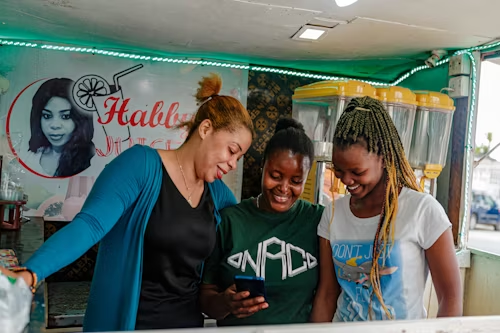Traveling Respectfully in Tanzania
Tanzanians are known for being incredibly welcoming, friendly, and polite. Understanding and respecting local customs and etiquette will not only prevent unintentional offense but will also greatly enrich your travel experience, leading to more positive and meaningful interactions.
While locals understand that visitors come from different backgrounds, making an effort to observe local norms shows respect and is always appreciated. This guide covers some key aspects of Tanzanian customs and etiquette.

Greetings
- Greetings are very important and expected. Always greet people before starting a conversation or asking for help.
- A simple "Jambo" (Hello - more touristy) or "Habari?" (How are you?) is appreciated. Common replies to "Habari?" include "Nzuri" (Good/Fine).
- Learn basic Swahili greetings like "Shikamoo" (a respectful greeting for elders) and the reply "Marahaba". Your guide can teach you.
- Handshakes are common, but wait for the other person to initiate, especially women. Use your right hand.
- Take time for greetings; rushing is considered impolite.
Photography
- Always ask permission before taking someone's photograph, especially close-ups. Respect their decision if they decline.
- Be particularly sensitive when photographing children or in villages.
- Avoid photographing sensitive locations like military installations or border crossings.
Hand Usage
- The right hand is traditionally used for eating, shaking hands, giving, and receiving items.
- The left hand is often considered unclean. While tourists are given leeway, try to use your right hand for interactions as much as possible.

Dress Code
- Tanzania is generally conservative, especially outside major cities, tourist lodges, and particularly in coastal areas and Zanzibar (which has a large Muslim population).
- In towns, villages, and Stone Town: Both men and women should dress modestly. Aim to cover shoulders and knees. Avoid very short shorts/skirts, tank tops, or revealing clothing. Loose-fitting trousers or long skirts/dresses and shirts with sleeves are appropriate.
- On Safari: Casual and comfortable clothing is standard. Shorts (knee-length) are generally acceptable.
- Beaches/Resorts: Swimwear is fine at the beach or pool, but cover up when walking elsewhere in the hotel or town. Topless sunbathing is unacceptable.
Public Displays of Affection
- Overt public displays of affection (kissing, hugging) between couples are generally frowned upon and should be avoided. Holding hands is usually acceptable.
Gift Giving & Donations
- Avoid giving money or sweets directly to children, as it encourages begging.
- If you wish to help, consider donating to reputable local projects, schools, or community organizations. Your guide or Golden Memories Safaris can offer suggestions.
- Small, thoughtful gifts given discreetly to someone who has offered significant help might be appropriate, but are not generally expected.
Bargaining
- Bargaining is common in markets and with souvenir vendors. Do so politely and with a smile.
- In established shops or supermarkets, prices are usually fixed.
General Attitude & Key Takeaways
Patience ("Pole Pole")
Things often move at a slower pace. Embrace "pole pole" (slowly, slowly), relax, and be patient.
Ask if Unsure
If you're unsure about appropriate behavior in a situation, politely ask your guide or observe local interactions.
Smile and Be Friendly
A genuine smile goes a long way and is a universal language of goodwill.
Show Respect
Treat everyone with respect, regardless of their position. Respect elders and local traditions.
By being mindful of these customs, you'll foster positive interactions, gain a deeper understanding of Tanzanian culture, and make your journey even more rewarding. Enjoy your time connecting with the wonderful people of Tanzania!